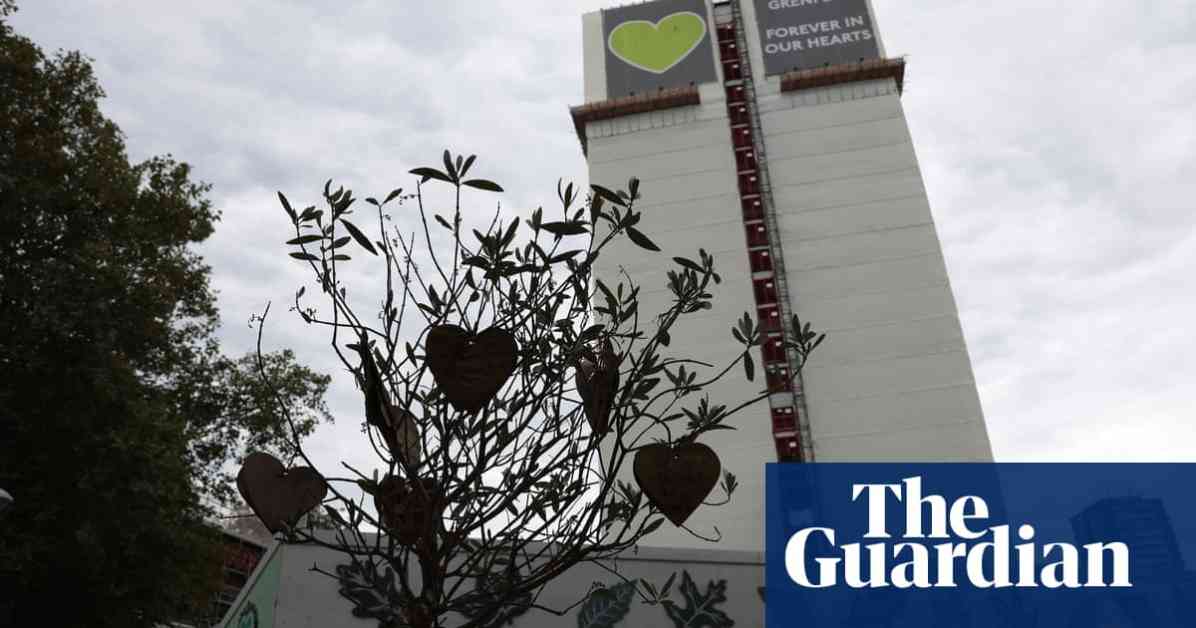Challenges in Accelerating the Grenfell Fire Criminal Investigation
The Grenfell Tower fire remains one of the most tragic events in recent British history, with the loss of 72 lives and the devastating impact on the community still reverberating years later. The public inquiry into the disaster has shed light on a series of failures and malpractices that contributed to the tragedy, leading to calls for justice and accountability.
The report from the public inquiry highlighted the systematic dishonesty of companies involved in the refurbishment of Grenfell Tower, pointing fingers at Arconic, Celotex, and Kingspan for their deliberate strategies to mislead the market. The findings have put pressure on the police to accelerate the criminal investigation and hold those responsible for the disaster accountable.
Police Response and Challenges
The Metropolitan Police is facing mounting pressure to expedite the criminal investigation into the Grenfell Tower fire following the scathing report from the public inquiry. With findings of systematic dishonesty and avoidable deaths, the police are tasked with unraveling the complexities of corporate negligence and regulatory failures that led to the tragic event.
The report’s revelations of deliberate strategies to mislead the market by companies involved in the refurbishment have raised questions about accountability and justice for the victims and their families. The police are now tasked with investigating 58 suspected individuals and 19 companies for potential charges including corporate manslaughter, gross negligence manslaughter, fraud, and misconduct in public office.
Despite the urgency to deliver justice, the Met’s deputy assistant commissioner, Stuart Cundy, has cautioned that it will take considerable time to examine the inquiry report thoroughly before submitting files to the Crown Prosecution Service (CPS). The painstaking process of reviewing the 1,700-page report line by line highlights the complexity of the case and the challenges faced by law enforcement in pursuing charges against those responsible.
Call for Accountability and Justice
The publication of the public inquiry report has reignited calls for accountability and justice from the victims’ families and survivors of the Grenfell Tower fire. Natasha Elcock, chair of the families’ group Grenfell United, has urged the Metropolitan Police and the Crown Prosecution Service to deliver justice and hold those responsible accountable for the avoidable deaths.
Prime Minister Keir Starmer has issued an apology on behalf of the British state and pledged renewed determination to ensure that justice is delivered for the victims of the Grenfell Tower fire. The London mayor, Sadiq Khan, and local MP Joe Powell have echoed the calls for immediate accountability, emphasizing the need for swift action to bring those responsible to justice using the full force of the law.
The delays in the criminal investigation have been a source of frustration for bereaved families and survivors, who feel that justice has been further postponed by the prolonged process. Hisam Choucair, who lost several family members in the fire, expressed disappointment at the delay in prosecutions and emphasized the need for timely action to address the failings that led to the tragedy.
Corporate Responsibility and Regulatory Failures
The public inquiry report has exposed the egregious behavior of companies involved in the Grenfell Tower refurbishment, highlighting a culture of systematic dishonesty and negligence that contributed to the disaster. Arconic, Celotex, and Kingspan have been singled out for their deliberate strategies to mislead the market and conceal the dangers of the materials used in the tower’s cladding.
The report’s findings underscore the need for accountability and reform in the construction industry to prevent similar tragedies in the future. The failures of regulatory oversight and corporate responsibility revealed in the inquiry have raised concerns about the need for stricter regulations and enforcement mechanisms to ensure the safety of high-rise buildings and protect the lives of residents.
The recommendations put forth by the inquiry panel, including the establishment of a new construction regulator and urgent review of building regulation guidance on fire safety, point to the systemic failures that allowed the Grenfell Tower fire to occur. The call for a national authority to oversee building control functions highlights the need for centralized oversight and accountability in the construction industry to prevent future disasters.
The revelations of corporate misconduct and regulatory failures in the Grenfell Tower fire have ignited calls for justice and accountability from the victims’ families, survivors, and the wider community. The pressure on the police to accelerate the criminal investigation and hold those responsible accountable reflects the urgent need to address the systemic failures that led to the tragic event and ensure that justice is served for the victims and their families.












